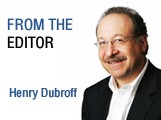New cigarette tax could be breath of fresh air for cancer researchers

Proposition 29, also known as the California Cancer Research Act, goes before voters in the June 5 primary election. It comes with endorsements from the American Cancer Society, the health care industry and San Diego-based Sanford-Burnham Medical Research Institute.
Prop. 29, which requires a simple majority to pass, would impose a $1 per-pack tax on cigarettes, the first such hike in years, raising an estimated $585 million annually to fund research into advanced cancer cures, prevention programs and other research studies.
A study by Stanton A. Glantz at UC San Francisco, circulated recently on the widely-read Fox & Hounds website, asserts the total impact of the bill will be 16,000 new jobs and $2.7 billion in economic benefits. The benefits include reduced health care costs due to reduced smoking. Oversight would be modeled on California’s stem cell research initiative.
Also, a provision would “back fill” or neutralize the impact of declining cigarette sales on earlier approved consumer education and anti-smoking programs under Propositions 99 and 10.
Advocates, including the American Lung Association and Lance Armstrong’s LiveStong effort, herald the tax as a way to cut smoking, reduce health care costs and expand cancer research.
In a phone interview with me, Jamey Marth, director of Sanford-Burnham’s UC Santa Barbara center, said Prop. 29 is necessary, “to retain our leadership capabilities in science education and research in California.” He said that the funds generated by the proposition would shore up funding that’s been hit by budget cuts and stem a persistent brain drain. “The risks are small and the benefits are high,” he said.
California is hardly the highest-taxed state for cigarettes, ranking 33rd, and many researchers believe we are on the cusp of a series of medical breakthroughs in finding cures for cancer. Taxes that penalize bad behavior and pay for themselves with jobs and funding have had broad, bipartisan support in the past.
But these are not normal times. The measure doesn’t help solve the state’s general fund budget deficit and there’s always the possibility that UC research centers that get Prop. 29 funding may find themselves facing a backlash from the Legislature and the governor when it comes to the annual fight over ongoing funding.
There’s a fair amount of back-chatter on the blogosphere about the inherent faults of single-issue ballot measures and whether the California Cancer Research Act will deliver on its promises of jobs and research breakthroughs.
Meanwhile, in the political arena, Prop. 29 is going to be heavily contested by tobacco companies, and it’s not at all clear how it might compete with a variety of broader tax levies being pushed as a way to end California’s persistent general fund shortfalls.
But we are beginning to learn a lesson about state and local governments that don’t solve budget problems, which is to say that leadership vacuums don’t persist for very long.
Whether it is developer Rick Caruso seizing on the Santa Barbara County’s fiscal meltdown to lobby successfully for a “too big to fail” subsidy for hotel mega-projects [see story on page 1A] or the American Cancer Society, Armstrong and Sanford-Burnham searching for a way to keep pushing the envelope on smoking-related disease, windows of opportunity open and risk-takers are willing to jump through them.
California’s inability to fund its world-class science and medical centers means that researchers are looking for new revenue streams.
And getting a tobacco tax through the legislature without going directly to voters is practically impossible due to the industry’s effective lobbying in Sacramento. Marth admitted it is not at all clear whether UCSB or its Sanford-Burnham center would get funding under Prop. 29, but in the end every scientist pursuing cancer cures will benefit directly or indirectly from Prop. 29 funding. “It’s a game changer for where we go with diagnosis and treatment,” he said.
Expect the Prop. 29 debate to get much more heated as we get closer to election day.
• Contact Editor Henry Dubroff at hdubroff@pacbiztimes.com.








